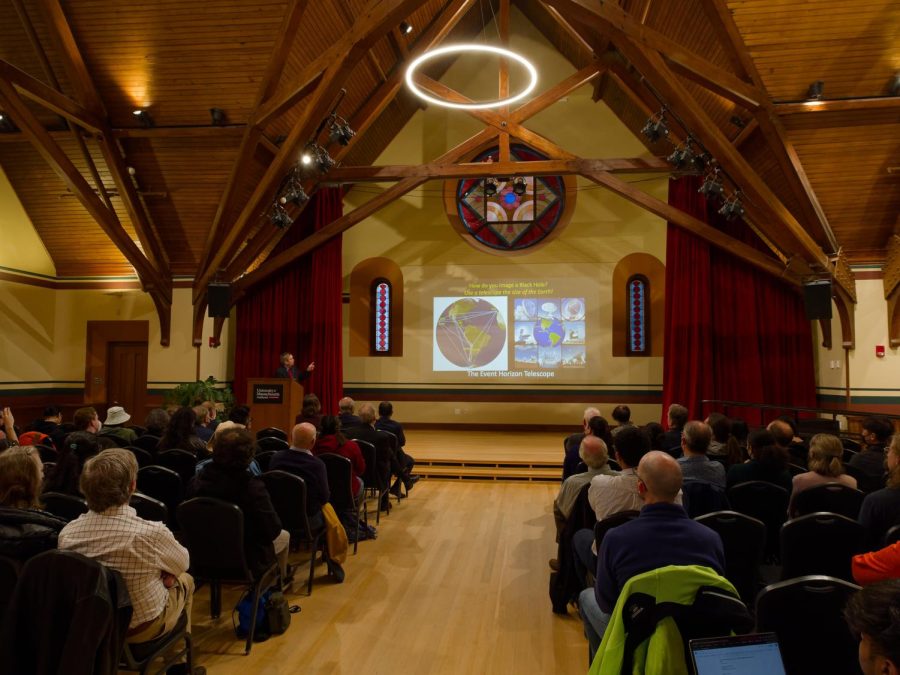
The National Science Foundation awarded $348,218 to two faculty members of the geoscience department at the University Massachusetts to investigate whether fluctuating temperatures in Greenland’s past had a role in causing the disappearance of Viking settlements in the 1400s.
Professor Raymond Bradley and assistant professor Isla Castaneda, along with third-year graduate student Greg de Wet, are traveling to Greenland this summer to reconstruct an archive of temperature changes over the last 1000 years for their study. The researchers will analyze the layers of sediment found at the bottom of Greenland’s lakes to document these changes over time.
The Norse people successfully populated southwest Greenland until population numbers declined around the 1400s. De Wet challenged the conventional explanation for the displacement of those settled populations.
“In the (1980s,) the hypothesis was that (the disappearance) was due to this little ice age…there was this cooling that occurred and the environment became untenable to farming and survival. Recent research by archeologists have challenged this view,” de Wet said.
De Wet believed the recent discoveries indicated that the Vikings were adept at coping with climate change and the cause of their displacement may be due to some other external factors such as a breakdown of trade with Norway.
De Wet further challenged this explanation by questioning the reliability of the data used to arrive at the climate change explanation.
He said that most of the data on climate change used for those studies comes from “Greenland ice cores which are thousands of kilometers away and at a much higher elevation. In the proposal, we argue that that’s not an appropriate comparison and we need local paleoclimate records to confirm what the archeologists say.”
De Wet said that the goal of this research team is to use a more comprehensive approach to attempt to arrive at a clearer explanation for the cause of displacement.
“We want to be able to show how temperature was changing and how the human presence was changing in the same time period…[which] is pretty novel, there’s really only been one other study like this in Norway,” de Wet said.
The research teams have several ways of identifying how the human presence in Greenland changed over time. De Wet said the team will analyze specific compounds in the lake’s sediment produced by the combustion of organic matter as a way to track changes over time. De Wet also said the researchers aren’t above analyzing fecal matter.
“Another unsavory, and maybe funny thing we look for in the sediment are fecal sterols…produced in the digestive tracts of humans and grazing animals…so literally looking for Viking poop,” de Wet said.
De Wet said another way to track temperature is to analyze the change in the property of bacteria that have been present in the lake’s sediment.
“One of the ways is looking at bacterial membrane lipids. These are bacteria living in the lake that…change the structure of their cell membranes based on the temperature that they are living in. We go back through time and analyze the concentration of these lipids and use a transfer function to get the air temperature at that point in time,” de Wet said.
The sediment samples will be obtained using a process called “coring,” where a hollow five- meter cylinder is manually hammered into the lake bottom. The researchers will be located on a floating platform on the lake surface, and lift a weight around the cylinder using ropes and manpower, before dropping the weight to slam the cylinder into the mud. The cores will be extracted from several lakes around the southern tip of Greenland and shipped back to UMass for laboratory analysis.
De Wet said that the Artic is a good region to focus climate study “because it is extremely susceptible to climate change. There’s a term called ‘Arctic amplification’ where climate changes happening closer to the equator are magnified at higher latitudes and Greenland is obviously important because of the large ice sheet there.”
De Wet said that any melting of Greenland ice will accelerate over time due to a decrease in “albedo”, or the reflection of the sun’s energy off the Earth’s surface. White surfaces such as snow and sea ice reflect more energy and help stave off temperature increases, according to De Wet.
De Wet said that climate change can lead to a dramatic reduction in sea ice, which he said has already occurred over the past 30 years. This reduction can result in more energy being absorbed by the ocean rather than reflected by the ice that was once there.
De Wet commented on the unique experience the landscape of Greenland offers, which he says is in danger of damage due to climate change.
“Greenland is breathtaking with its mixture of snow, ice and beautiful mountains…You look up and there’s this massive ice sheet just up the fjord and icebergs [breaking off] glaciers all around you…being in geology allows you to be outside in these really cool places with a purpose.”
Tristan Tay can be reached at [email protected].



















Ray Bradley • Apr 22, 2016 at 12:07 pm
David Hunt 1990 has no idea how funding works. Research funding is based on good ideas and a solid record of accomplishment, through publishing research results in peer-reviewed literature. Furthermore, this research has nothing to do with global warming. But, by the way, global warming is a reality and will lead to en environmental crisis unless we reduce greenhouse gas emissions. I don’t need any funding to figure out that obvious fact.
David Hunt 1990 • Apr 19, 2016 at 9:49 am
Given that their continued funding rests on their findings pleasing their political masters, how much do you want to bet their results will be “global warming is real and a crisis and we need more money for more research”?